
Share
The Bayeux Tapestry is presented in a darkened space in which only the artefact itself is lit. Audio-guide commentaries in 16 languages including versions for children in French and English, and scenes in 3D relief for the visually impaired, serve to make the work accessible to as wide an audience as possible. After looking at the Tapestry itself, the visit continues with a permanent exhibition, which presents the secrets of its creation, and a overview of the historical context and the Anglo-Norman kingdom in the 11th century. Finally, on the second floor, a 16-minute film, screened alternatively in French and in English, shows the story told by the Bayeux Tapestry unfolds, including reconstructions of real scenes from the Battle of Hastings.
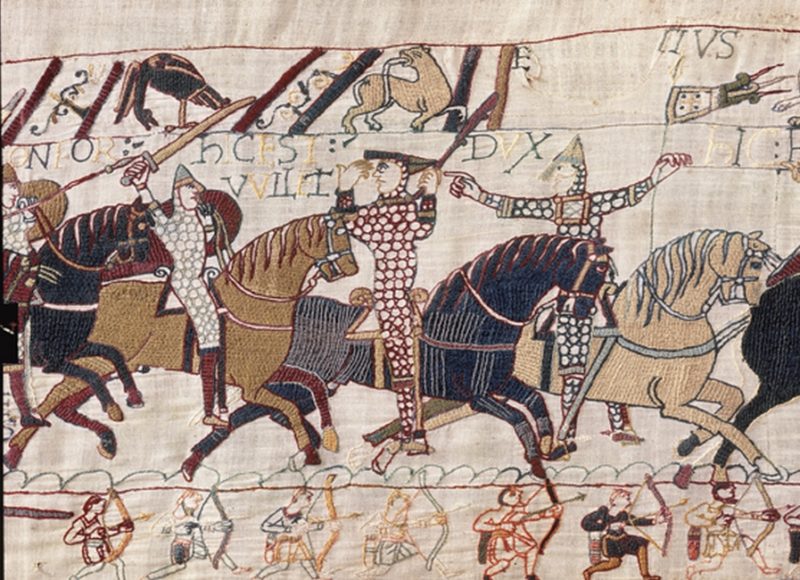
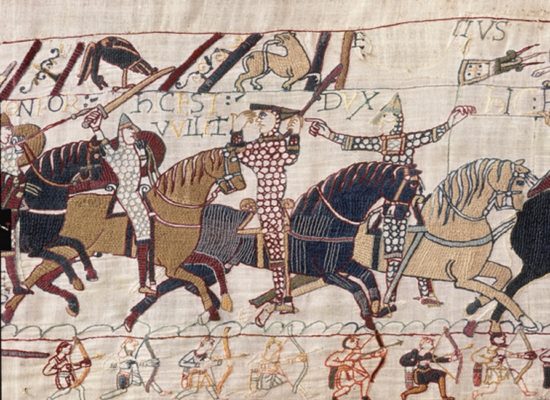
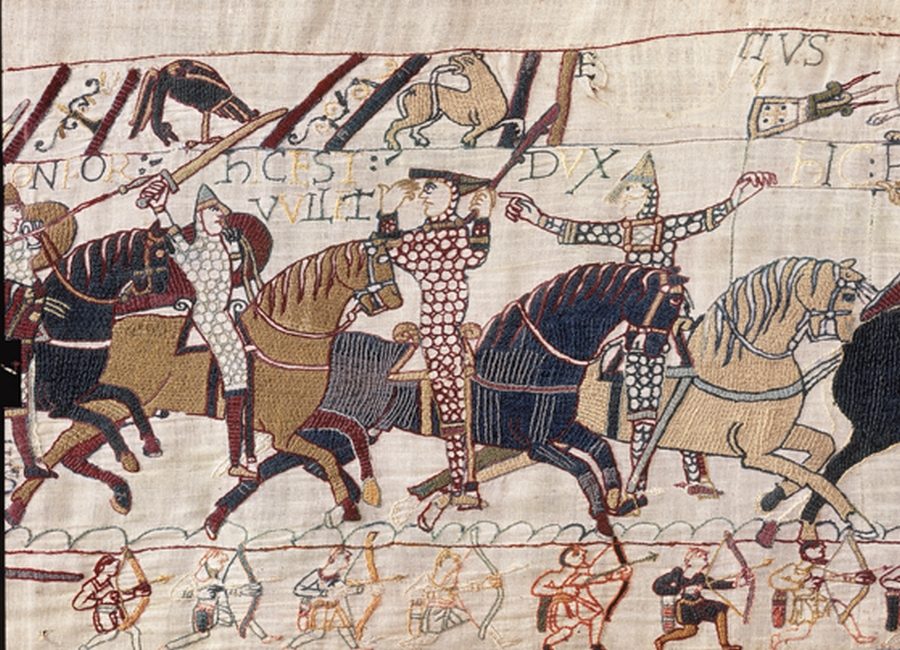
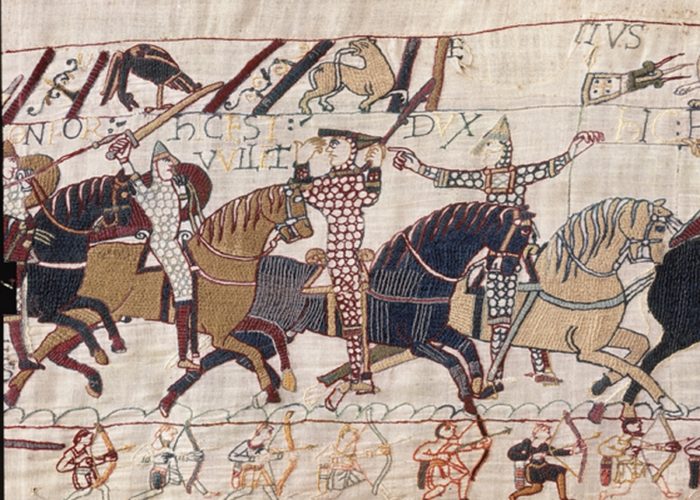
The Bayeux Tapestry tells the story of the events surrounding the conquest of England in 1066 by the Duke of Normandy. Crossing the sea in longships, long cavalcades on horseback, shields and coats of mail, fantastic creatures and battlefields: all the details of a great medieval epic unfold before your eyes!
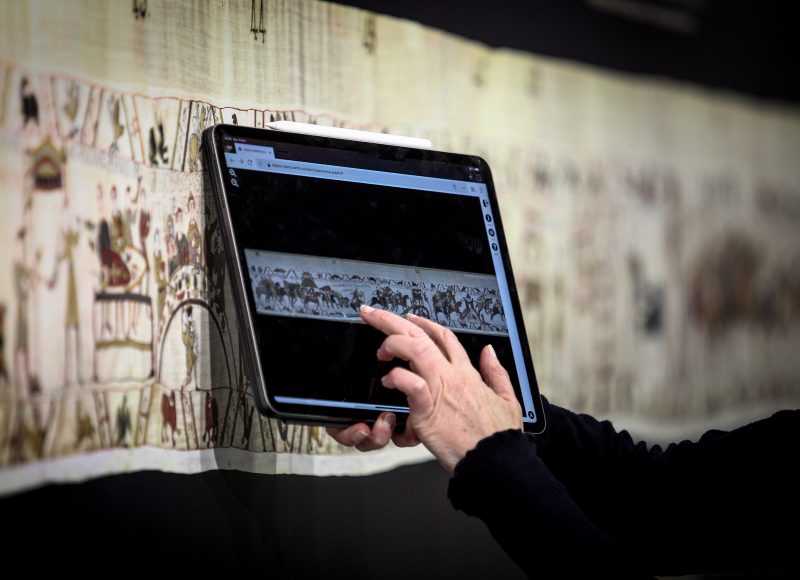
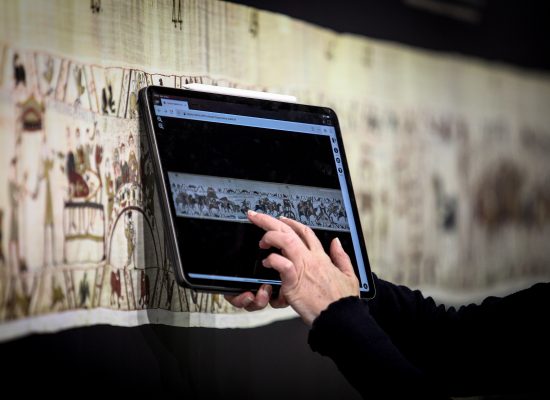
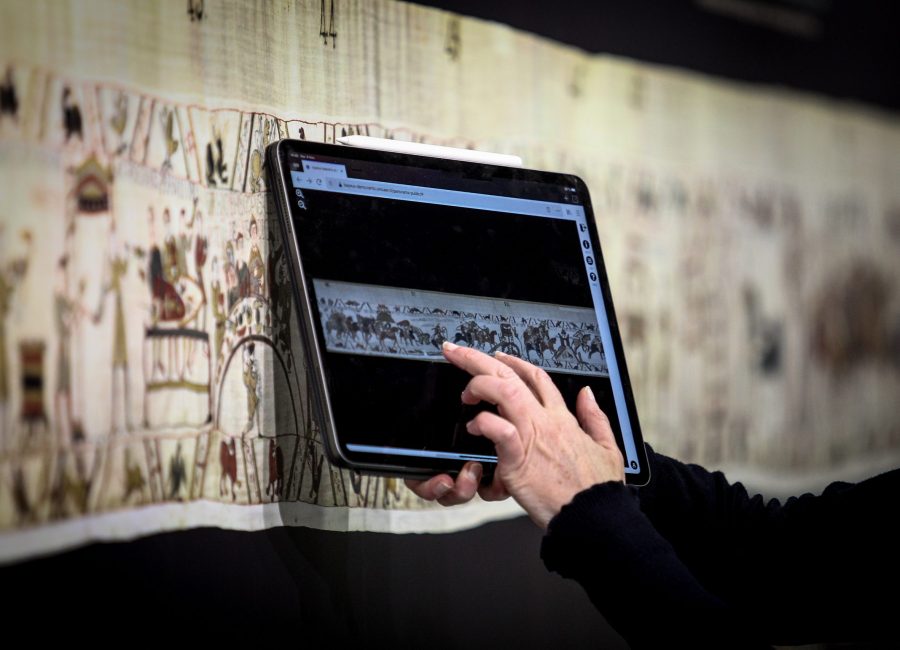
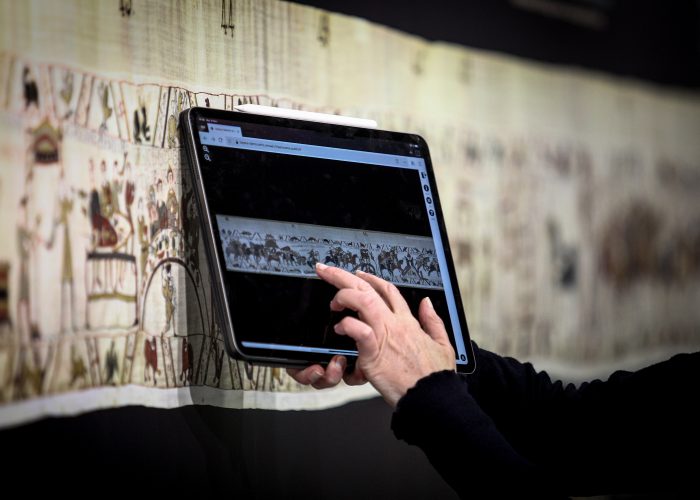
For the first time, you will be able to freely explore online the entire Bayeux Tapestry scene by scene with a never seen quality of images !
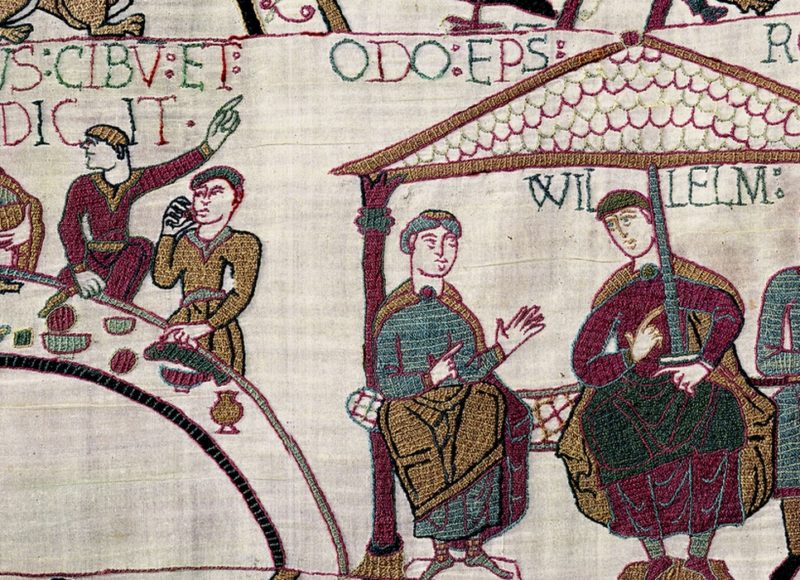
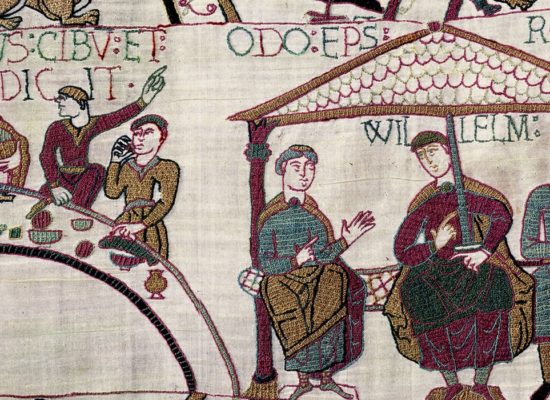
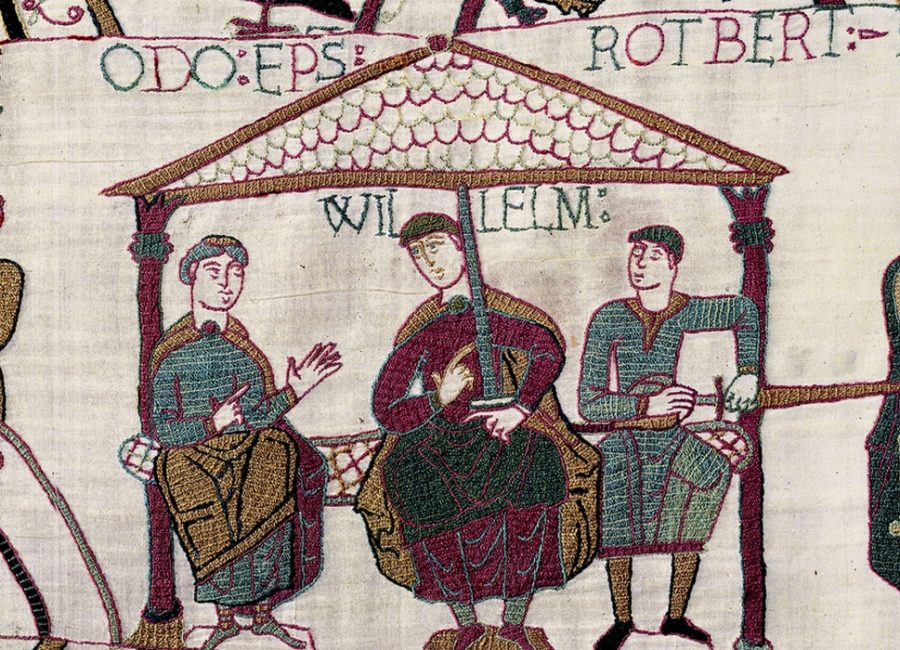
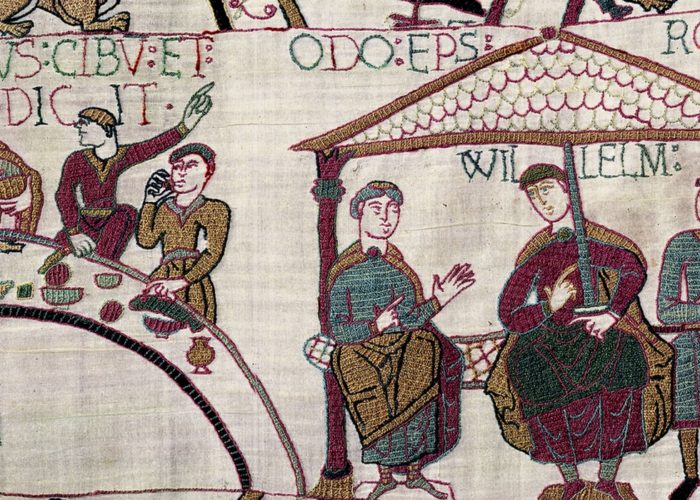
William, seventh duke of Normandy. Became the Conqueror after his coronation in England on December 25, 1066, he was one of the most powerful monarchs of Western Europe in the Middle Ages.
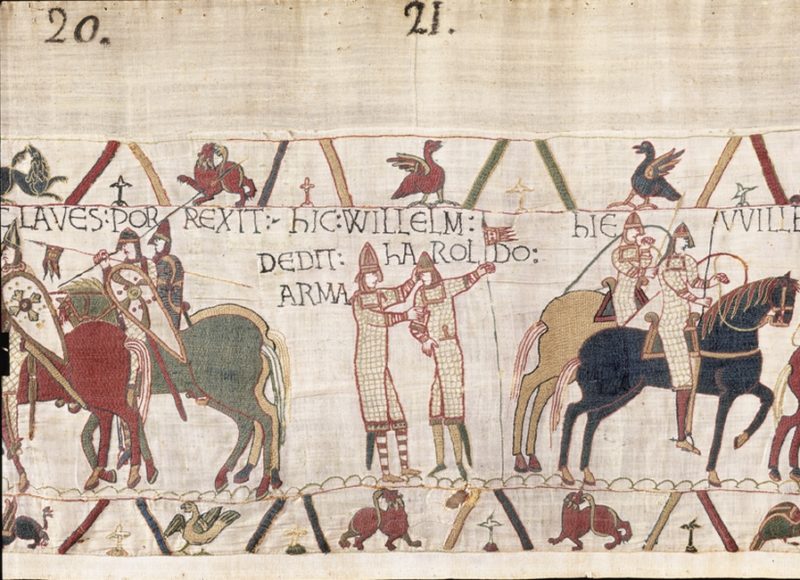
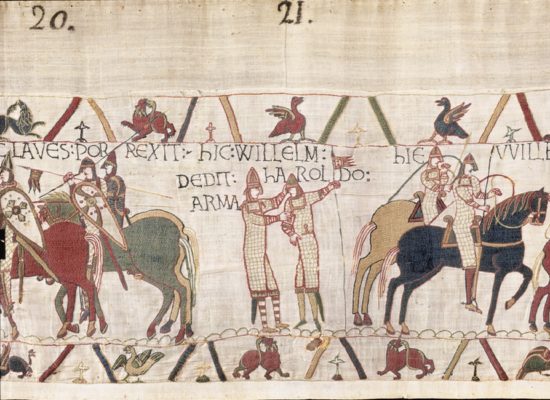
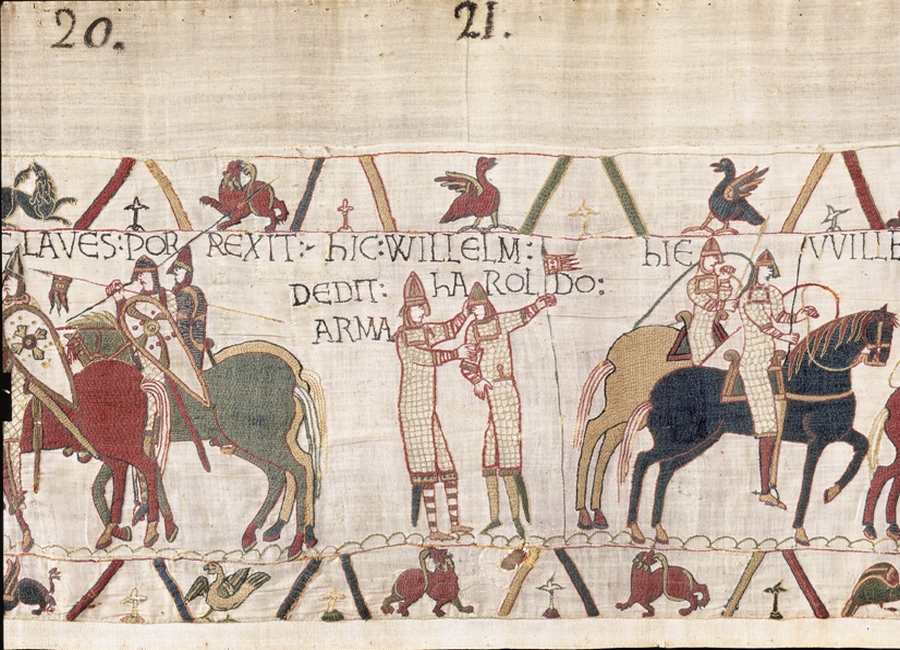
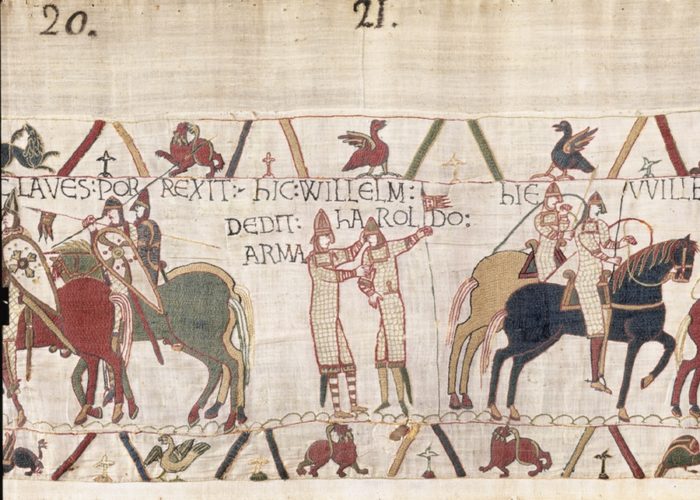
Among the many characters brought to life in the Bayeux Tapestry, William Duke of Normandy, Harold the Anglo-Saxon and Odo, Bishop of Bayeux are the main ones.
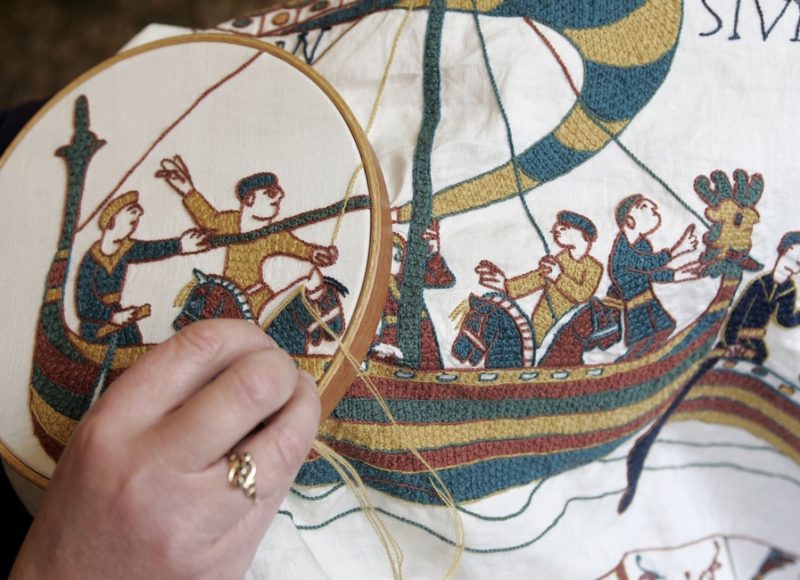
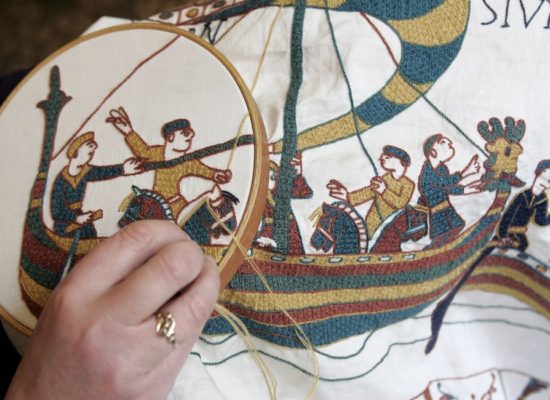
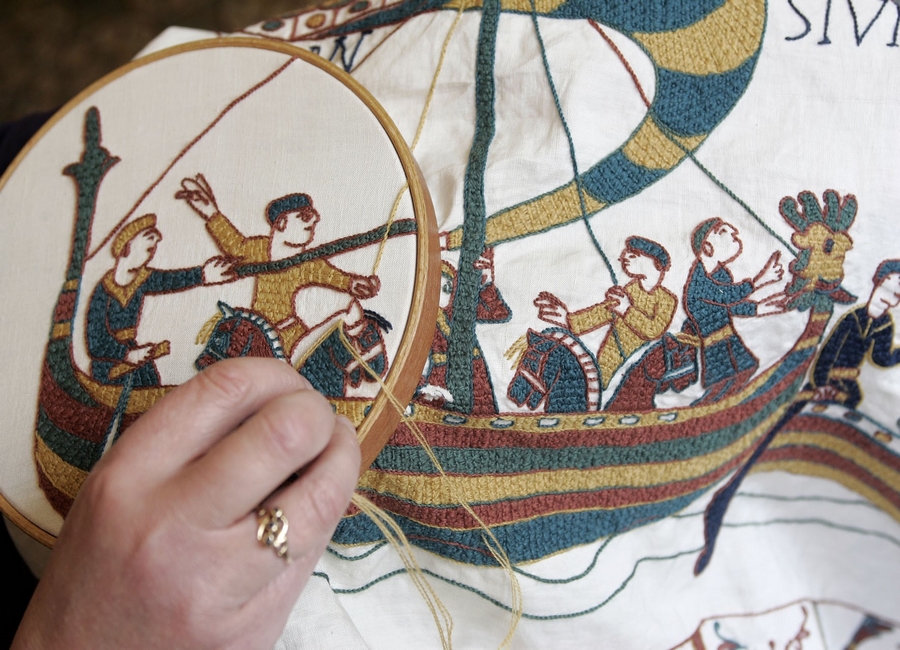
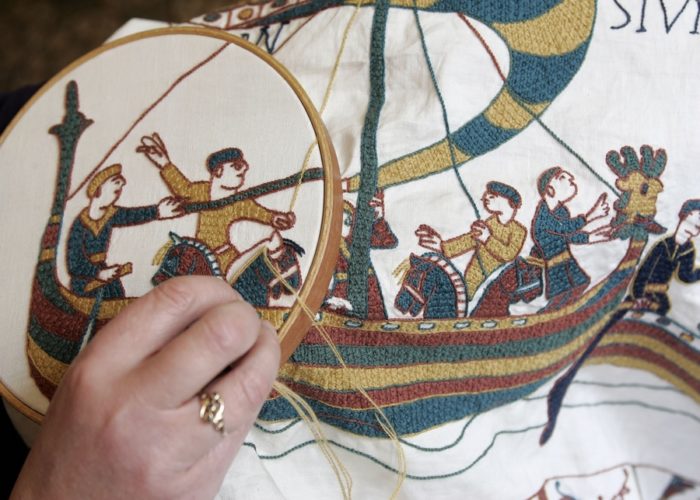
Despite its name, the Bayeux Tapestry is actually an embroidery in wool thread on linen cloth. The story it tells, based on imagery like stained glass windows, is both an epic poem and a moralistic work.
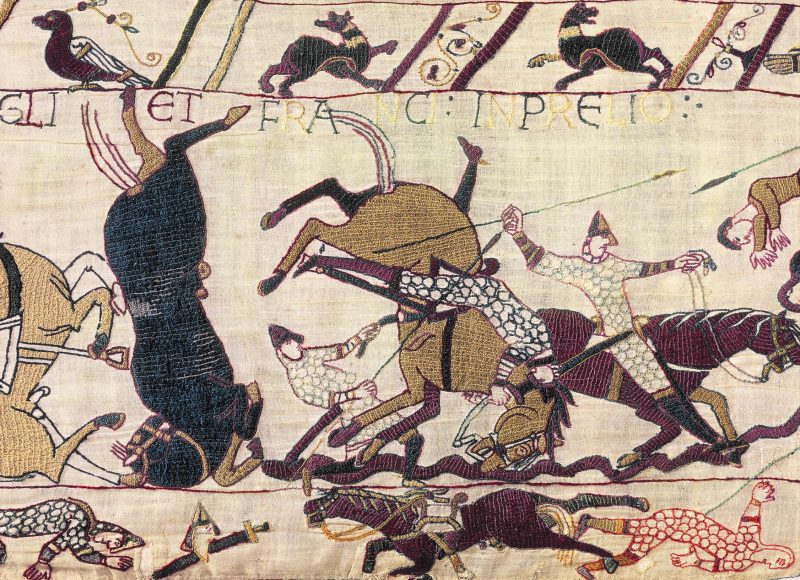
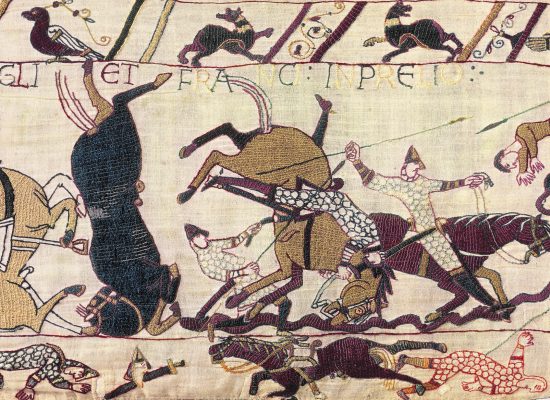
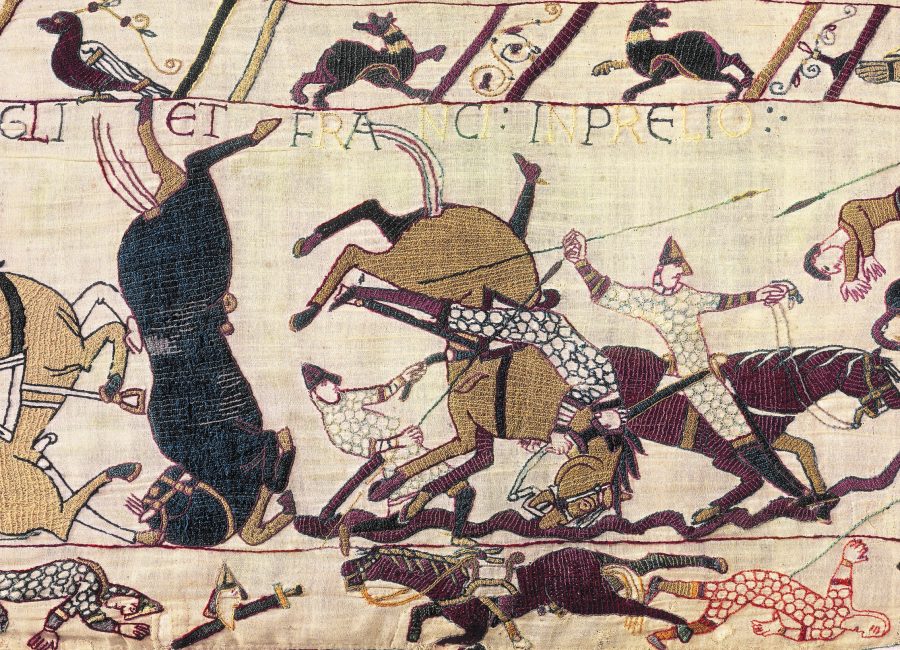
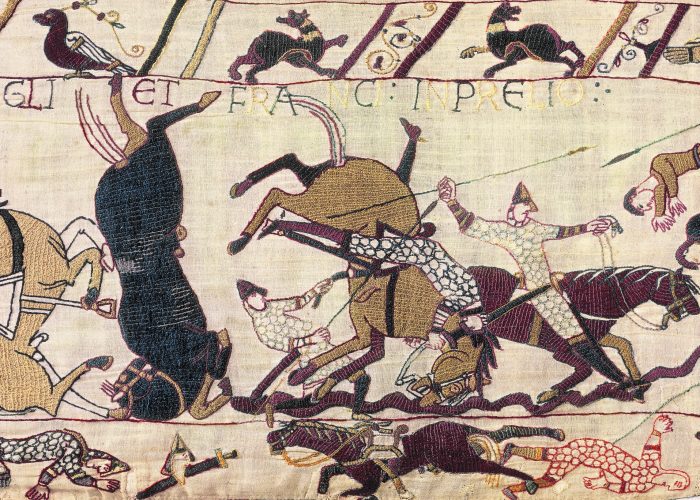
What happened at the Battle of Hastings on October 14, 1066? Why was this event in Anglo-Norman history decisive? Discover this military feat of the Middle Ages ...
The Bayeux Tapestry, dating back to the 11th century and registered in the UNESCO Memory of the World program, is on display in Bayeux, in the Normandy region. Its exhibition in the William the Conqueror Center, located at 13 bis rue de Nesmond, the site of the former Grand Seminary since 1983, is protected in a tailor-made glass case designed to shield it from temperature and humidity fluctuations. Specialized lighting is utilized to ensure the optimal preservation of this one-of-a-kind textile work of art.
Despite its name, the Bayeux Tapestry is actually an embroidery on linen. Crafted with ten hues of woolen thread, this unique work spans an impressive length of nearly 70 meters and a height of 50 centimeters, making it unparalleled around the globe.
An exceptional testimony of the 11th century, the Bayeux Tapestry narrates the epic of William, Duke of Normandy, who became King of England in 1066, following the Battle of Hastings.